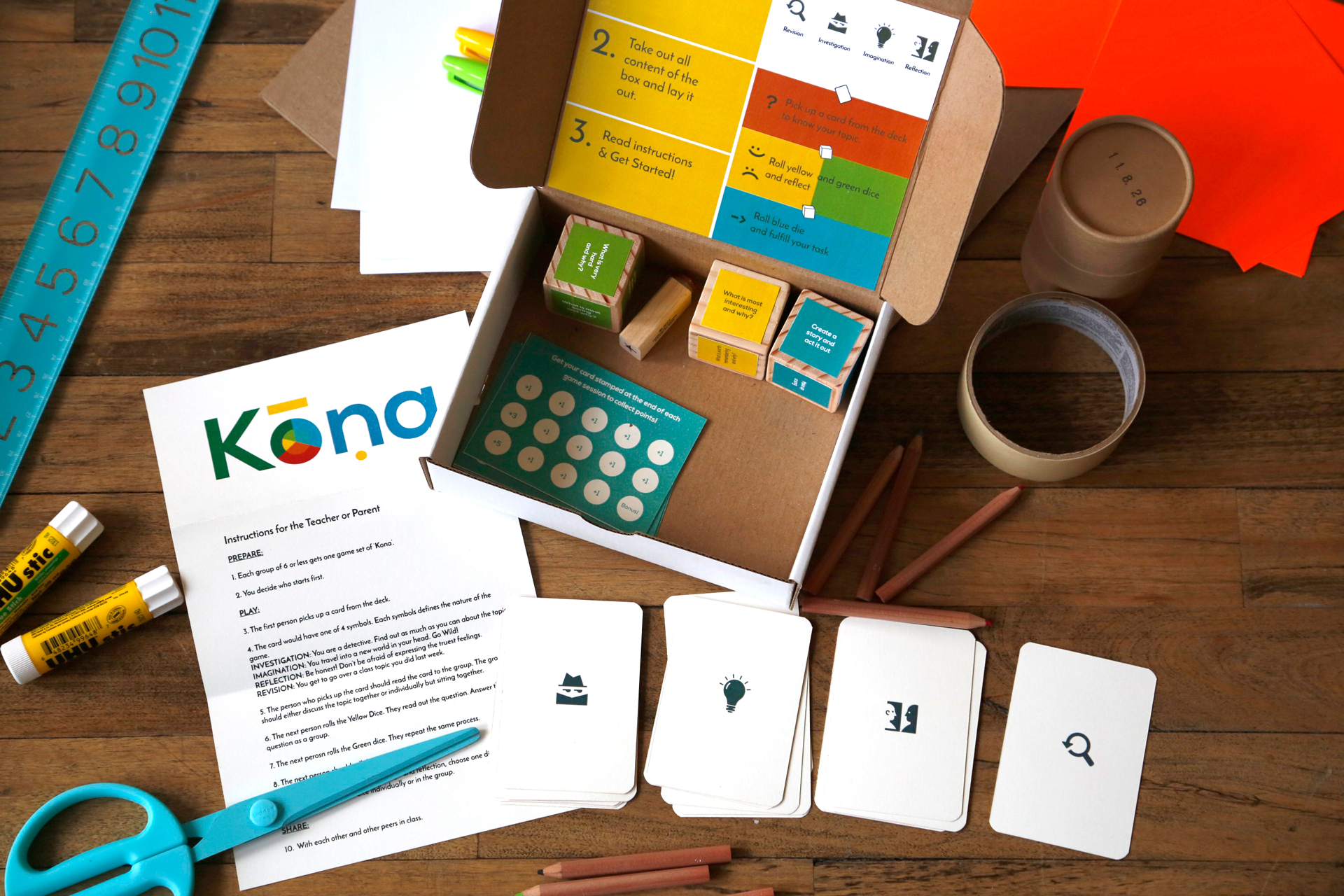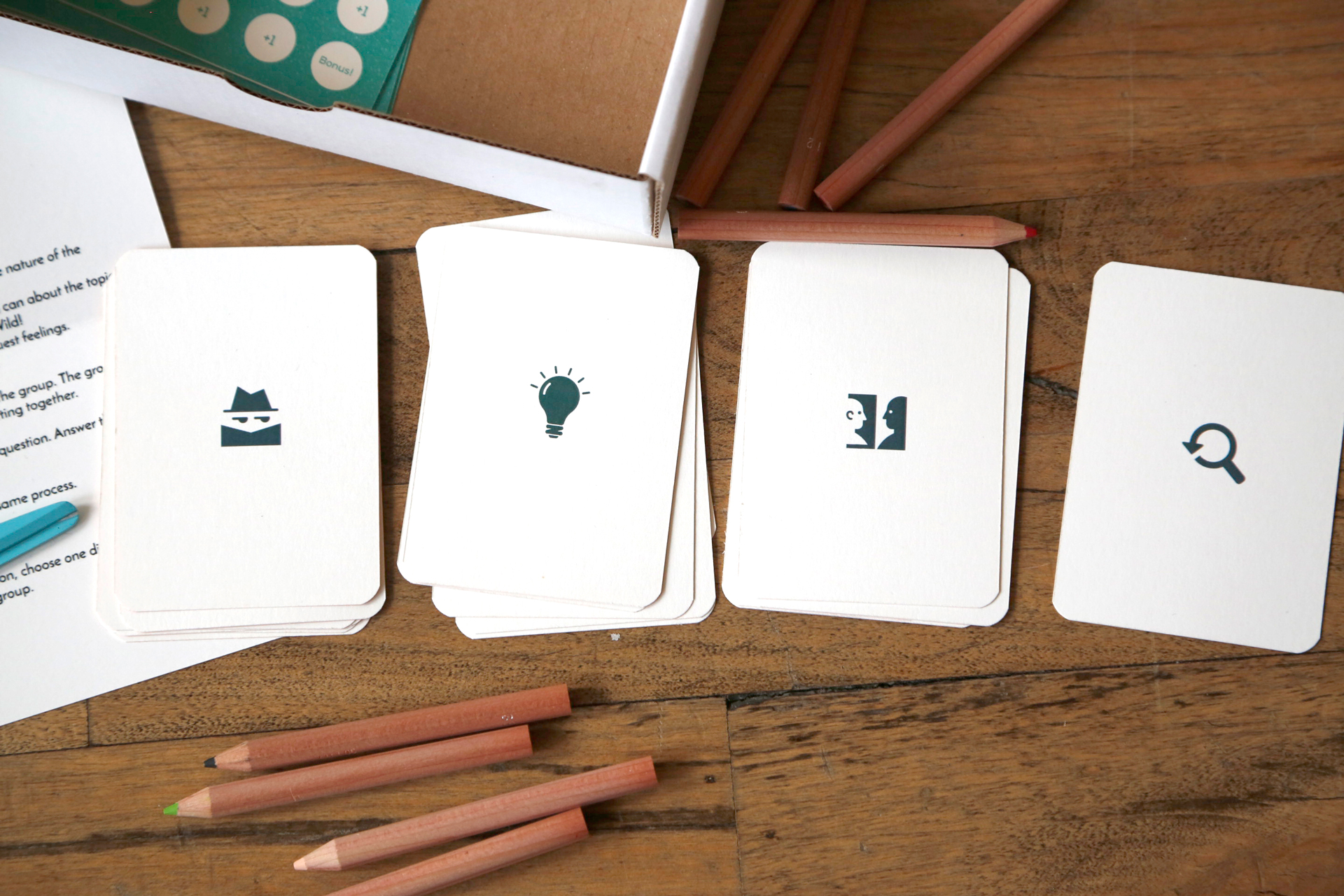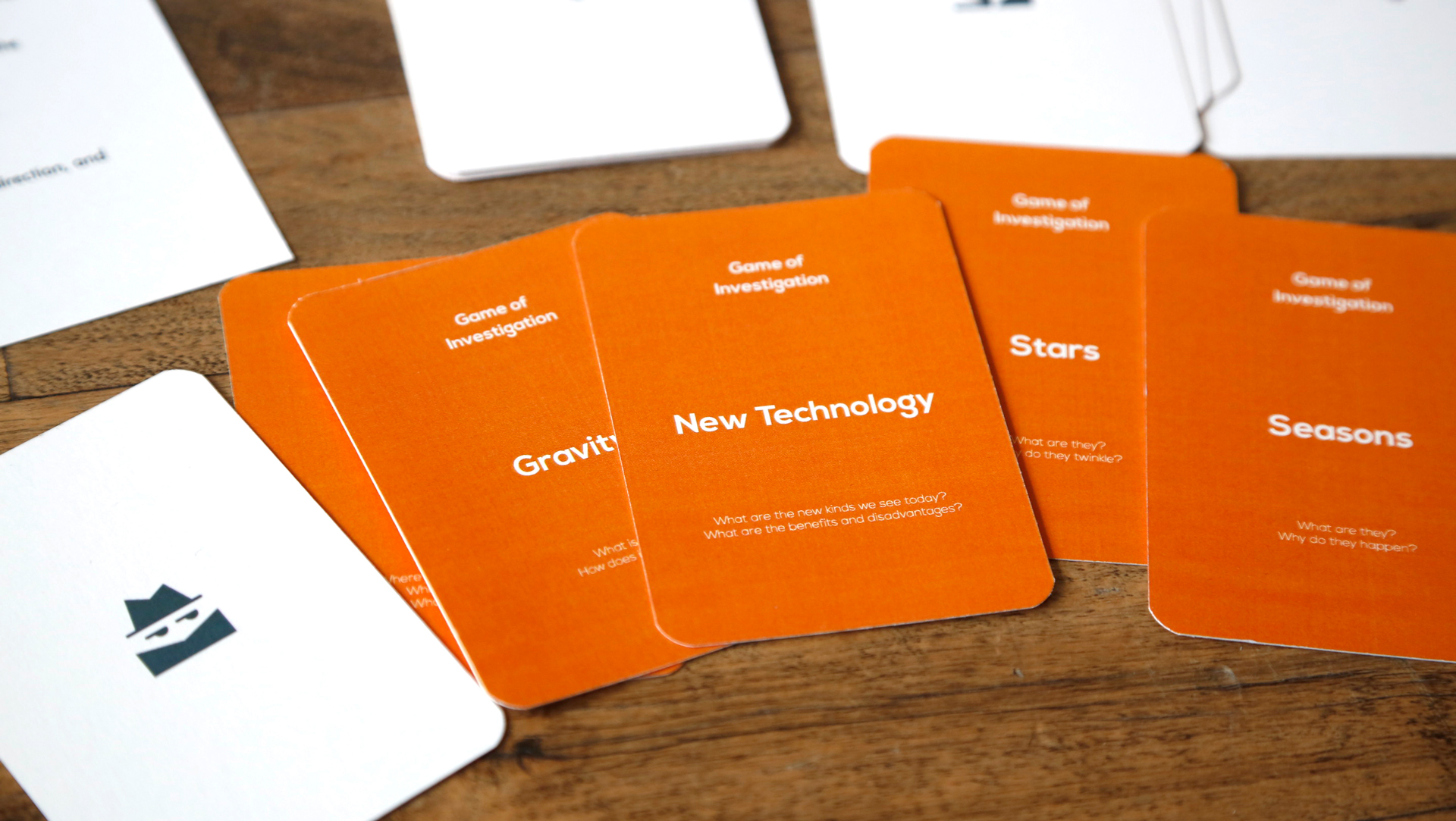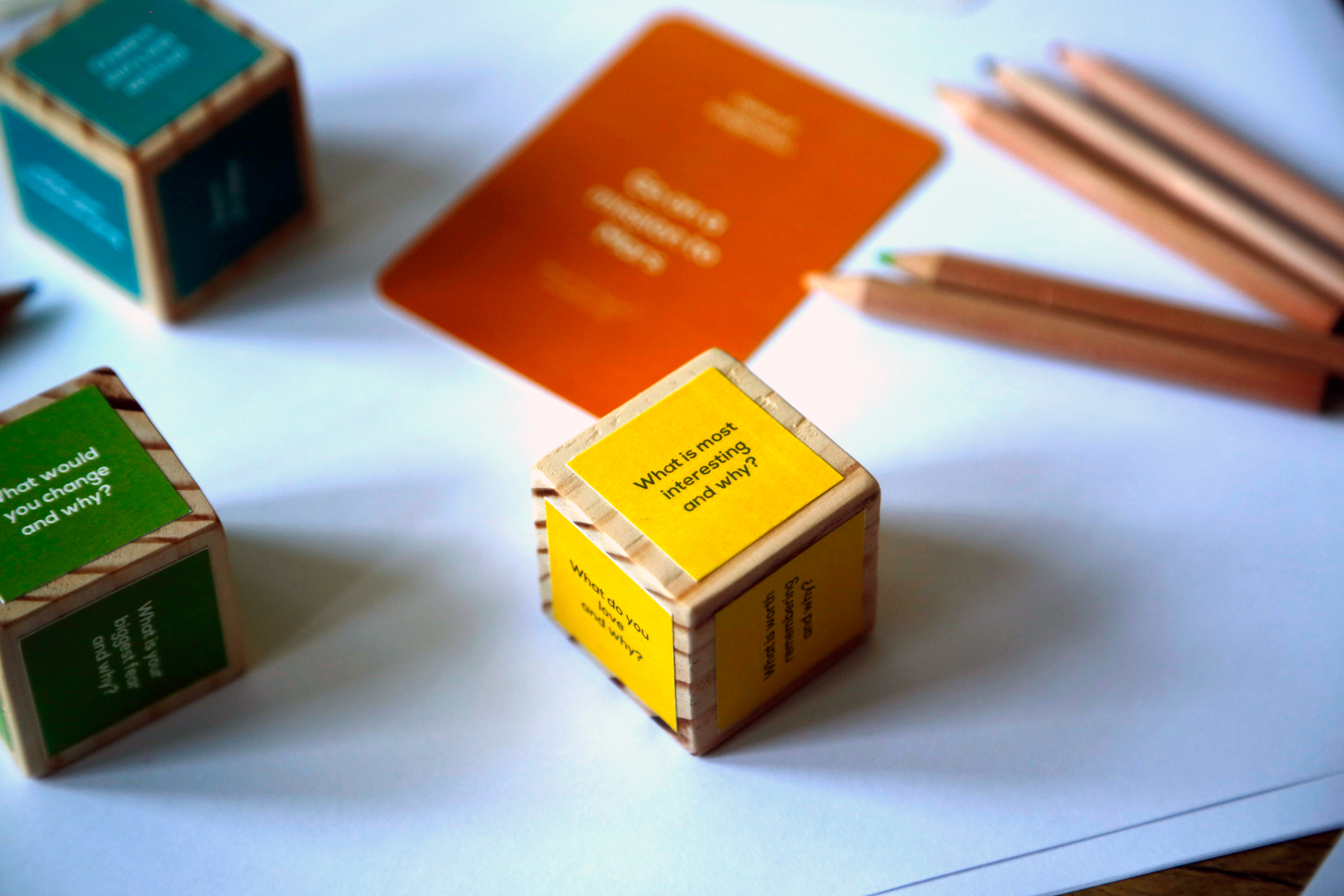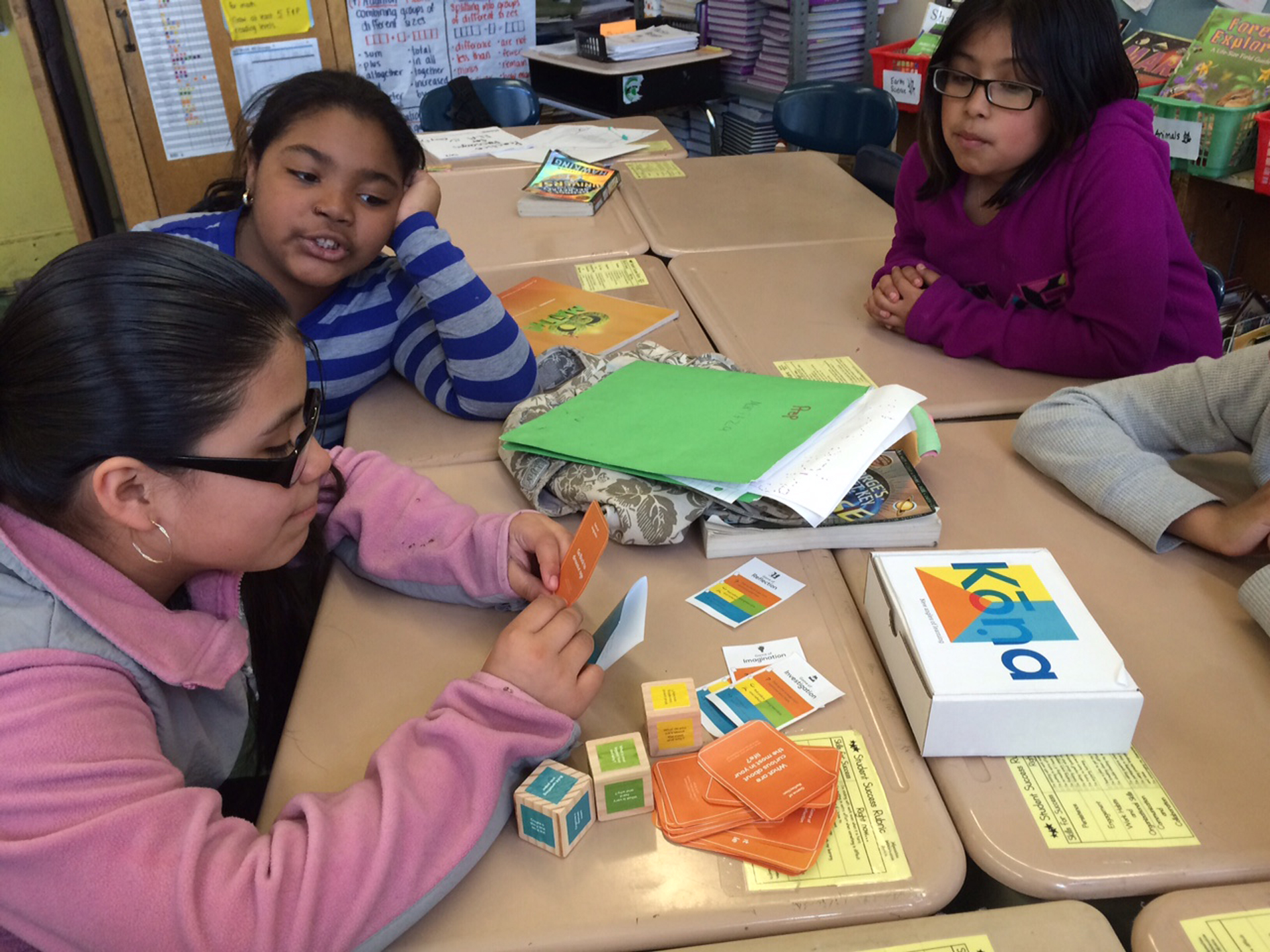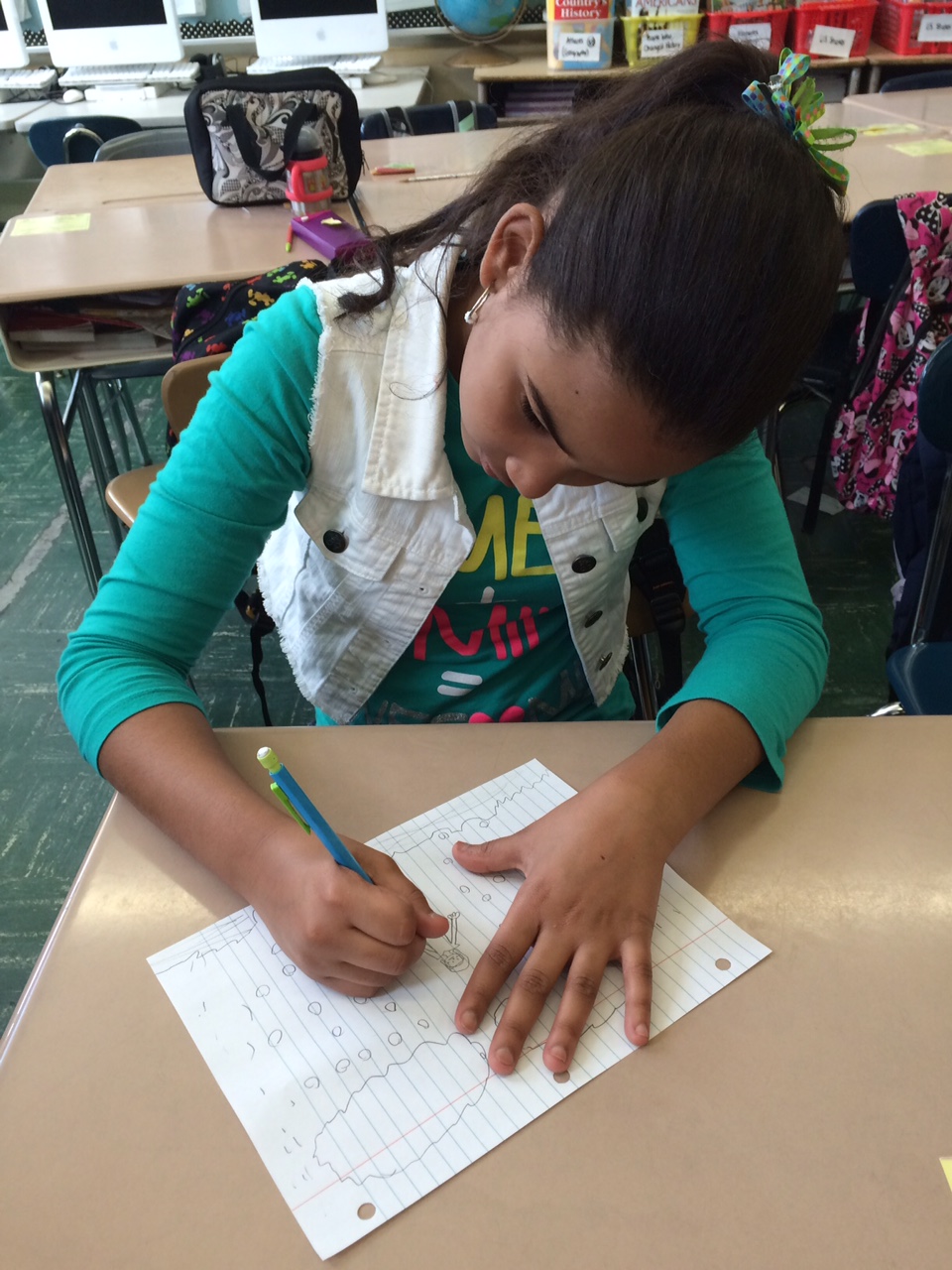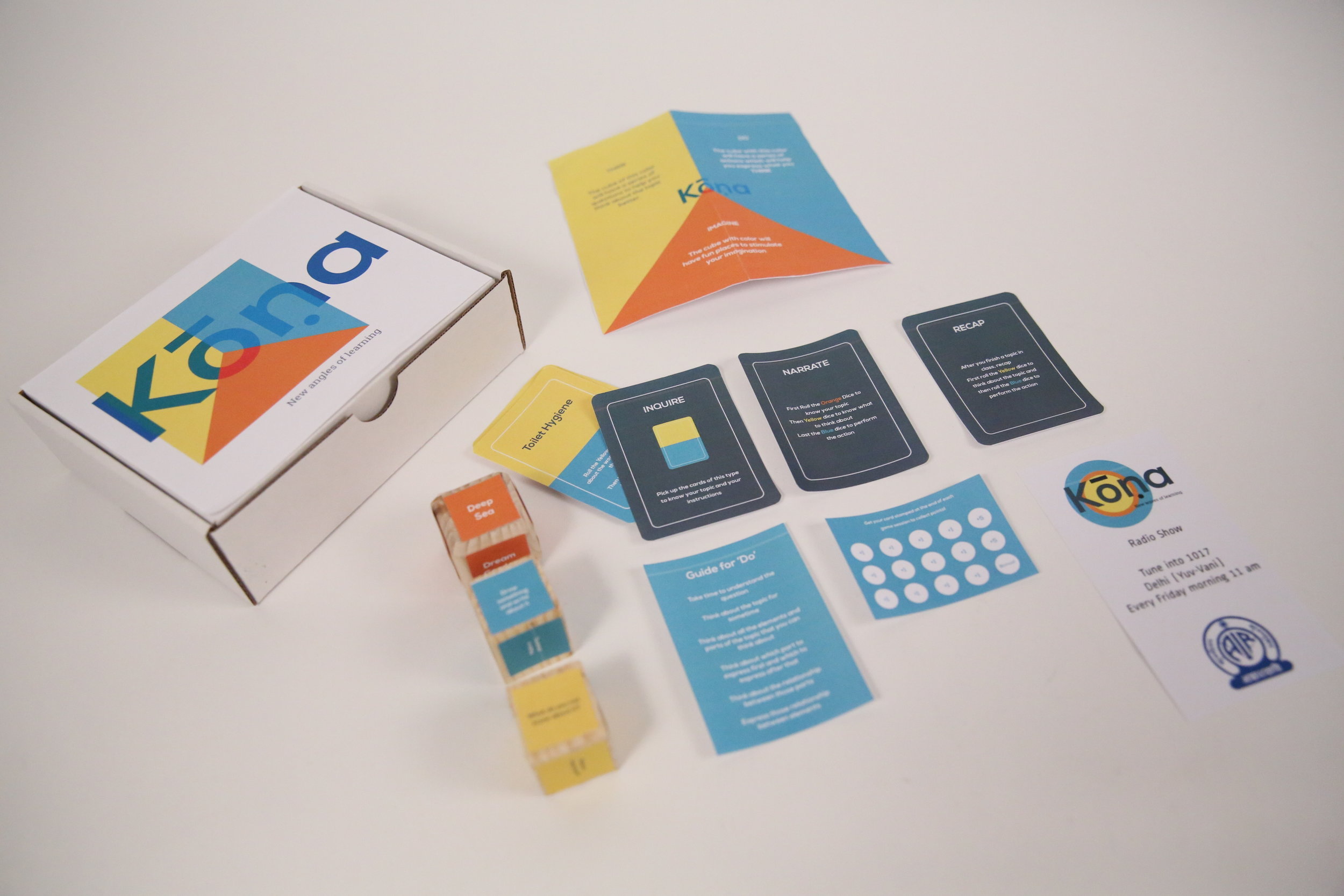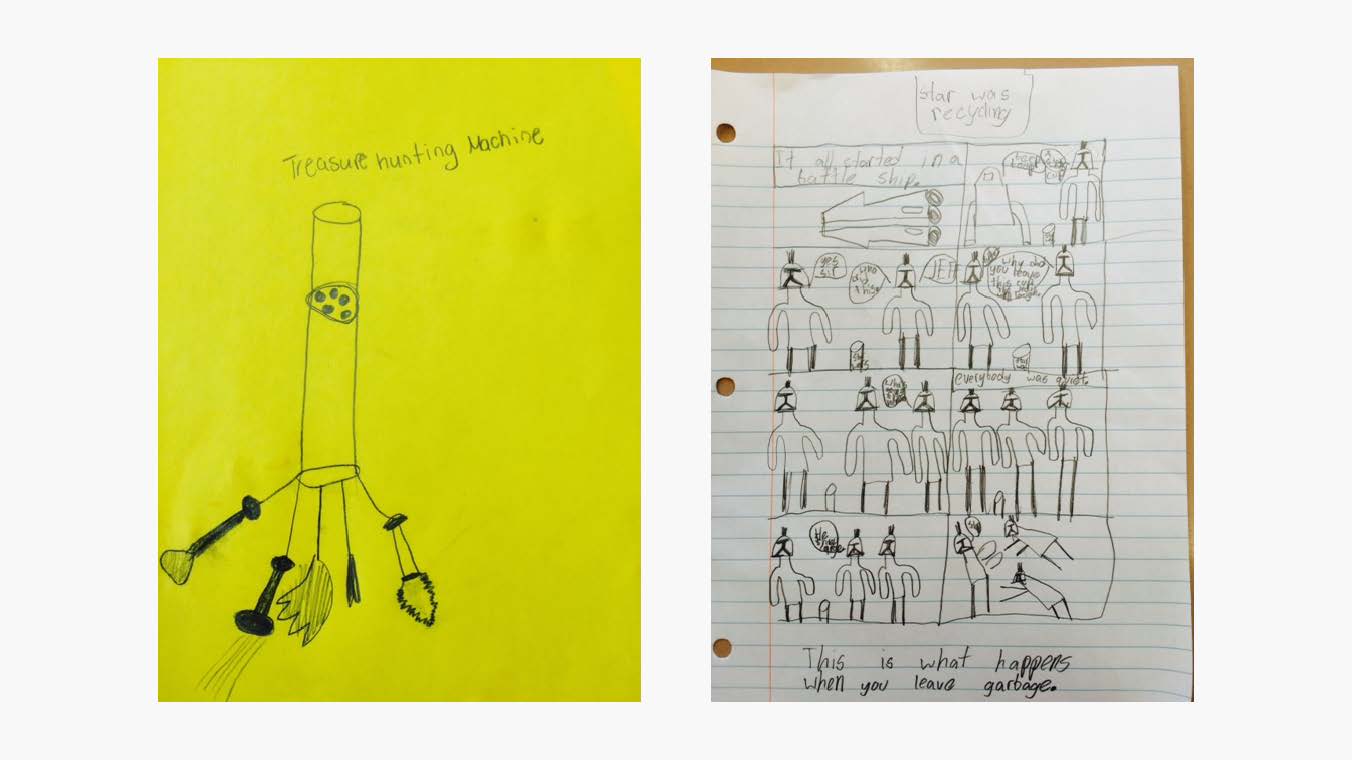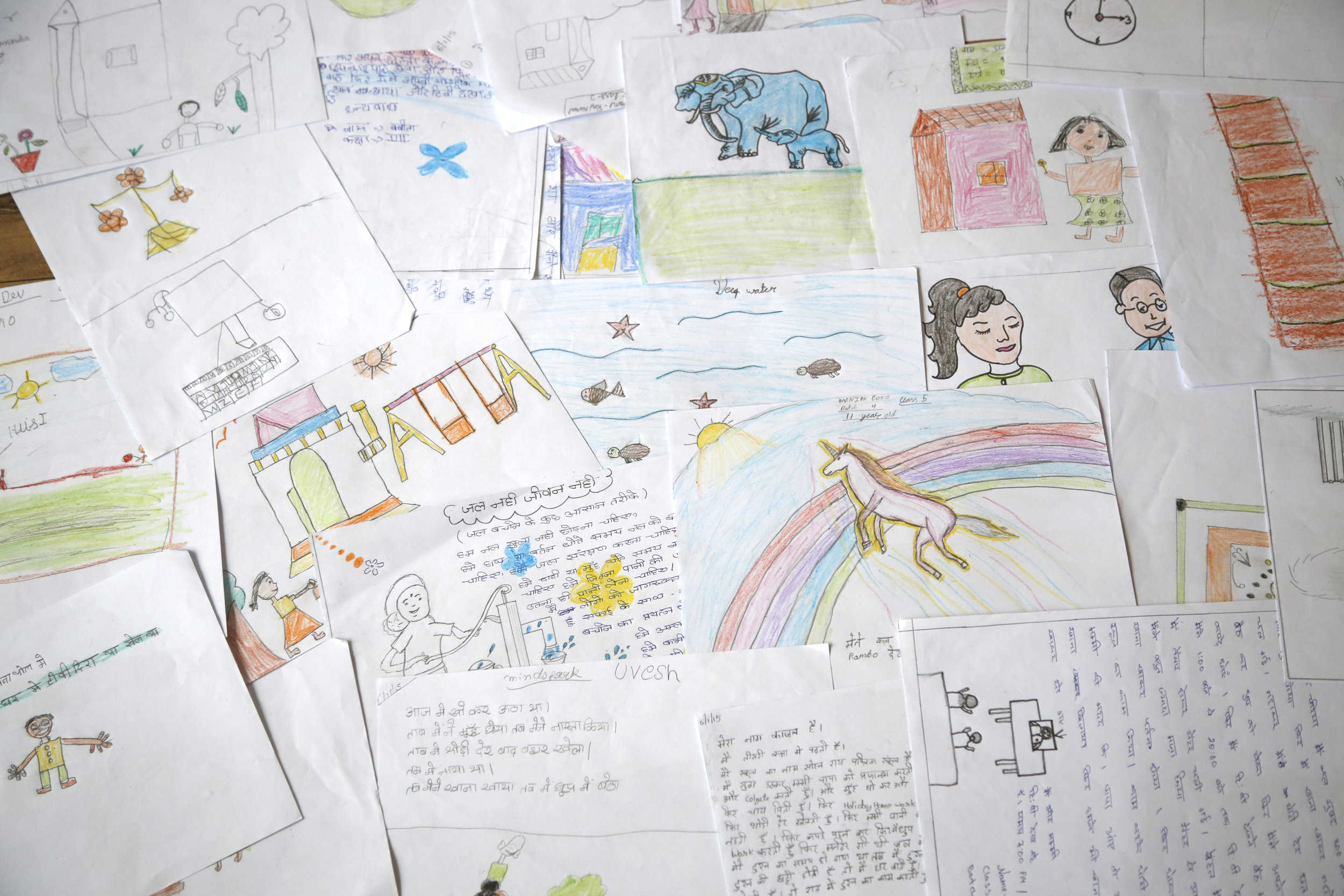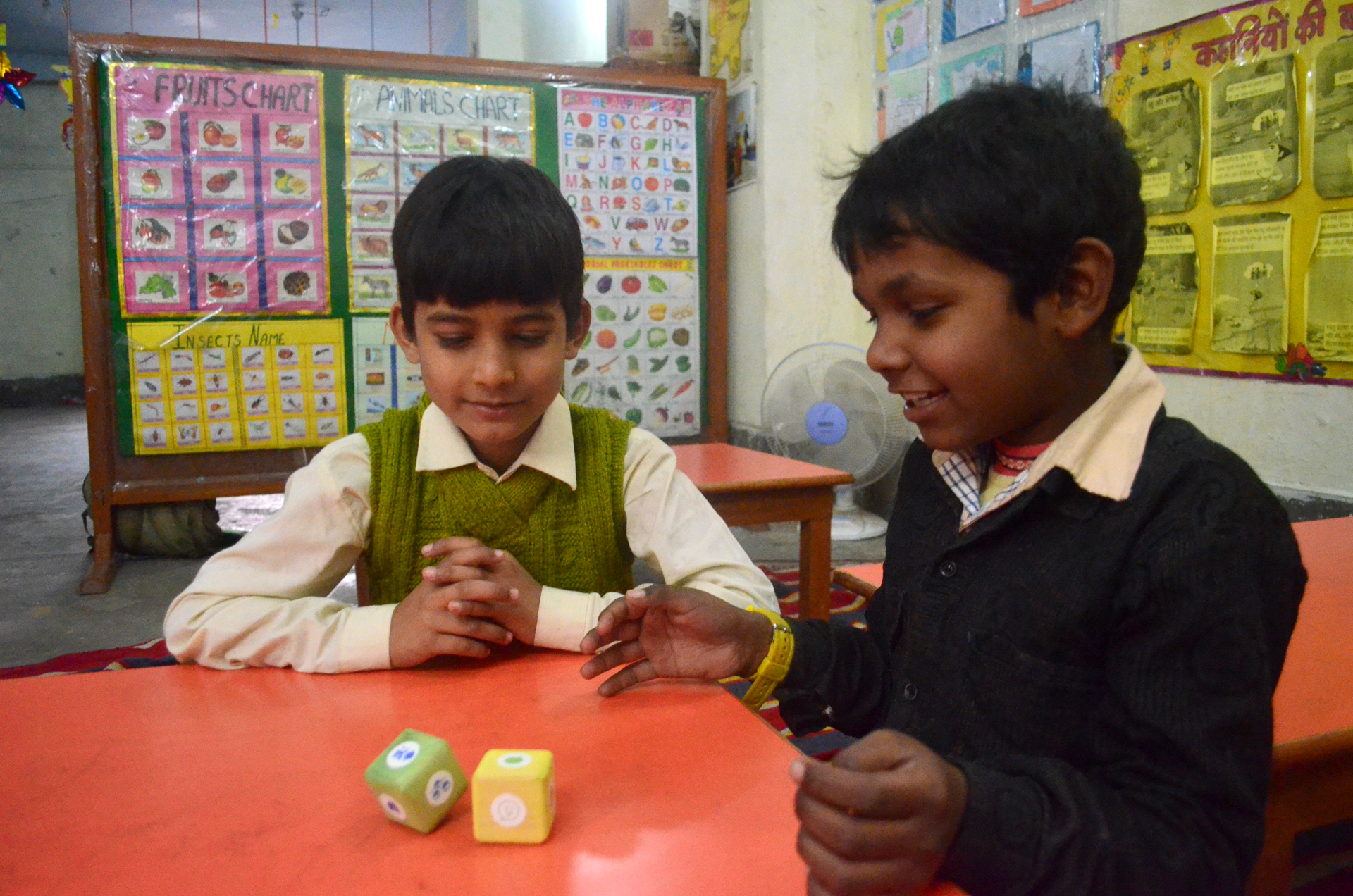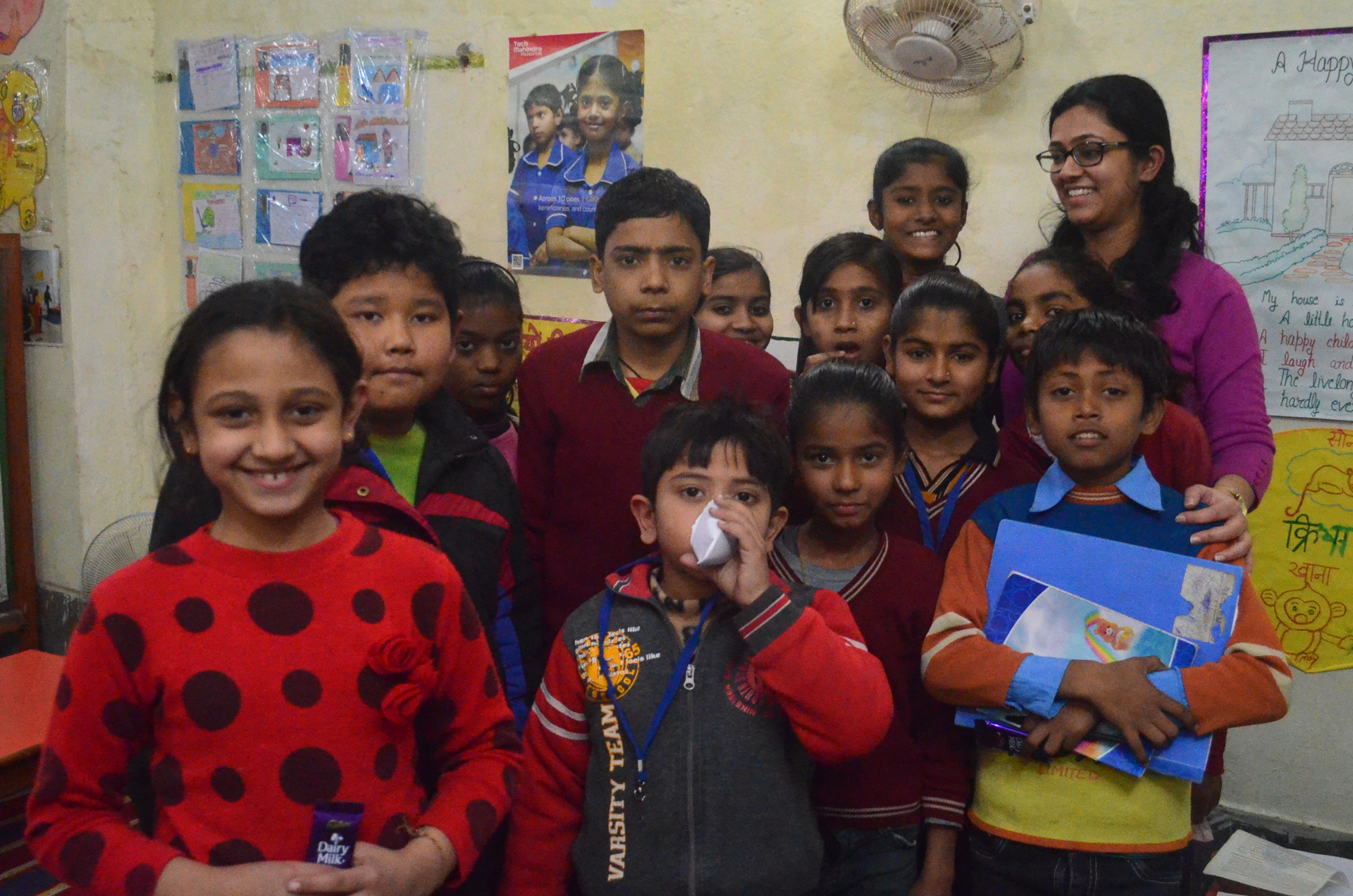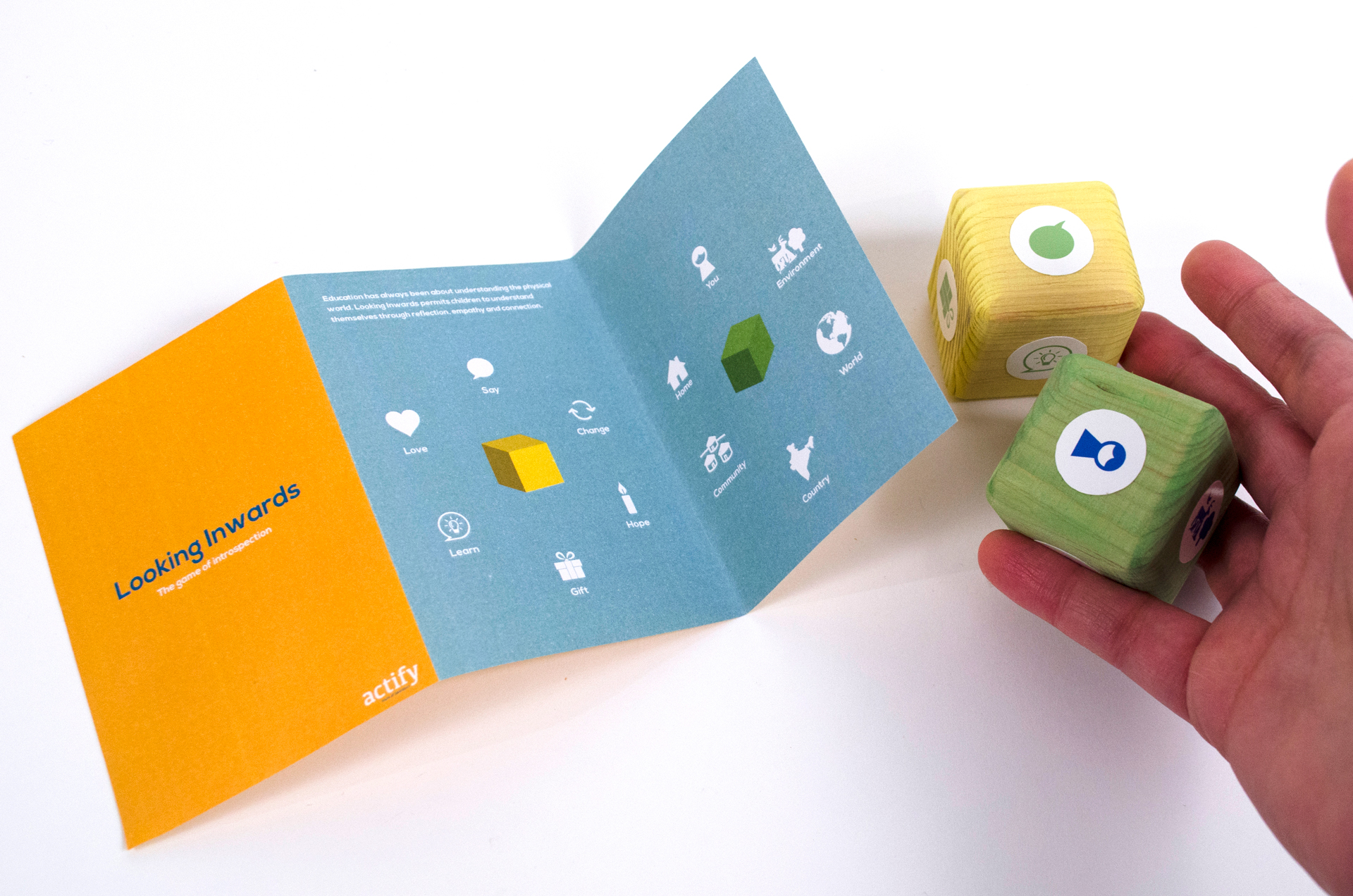Vidhi’s thesis journey began when she encountered an 8-year-old boy working at a teashop. Deepak could afford the option of a good school, yet he chose not to go. His reason was simple: he did not enjoy school. Vidhi soon realized that poverty and inaccessibility are just tip of the iceberg compared to other complex psychological and systemic problems. She questioned both how well children learn in schools, but also the degree to which they find value in what they are learning. Are pedagogy and schooling only about delivering content and preparing for examinations?
Vidhi felt empathy towards the children in Indian schools. “Children in India have a social obligation to perform, to know the right answers, and to strive for the most prestigious professions,” she argued
In her pursuit of creating new learning tools and platforms to develop independent thinking in children, Vidhi created a series of design prototypes, conducted experiments, and facilitated workshops throughout her thesis. Her goal was to change people’s perception of the existing curriculum and learning processes, and to introduce them to the virtues of possessing life skills, unique perspectives, and ultimately “the freedom to choose fearlessly.”
Kona
The final design offering of the thesis leveraged the learnings from all the design experiments, interventions and research up to this point. Vidhi quotes John Dewey from his book Experience and Education: “In a certain sense every experience should do something to prepare a person for later experiences of a deeper and more expansive quality. But it is a mistake to suppose that the mere acquisition of a certain amount of arithmetic, geography, history, etc., which is taught and studied because it may be useful at some time in the future, has this effect.”
Here, she created a game called Kona—New Perspectives to Learning. Attempting to change the pedagogical structure and interaction in public school classrooms, the game is designed to engage small groups of children, aged 8-12, in collaborative and constructive thinking and doing. She developed 4 broad aspects of learning and creativity: Investigation—learning about everything around us; Reflection—learning about ourselves; Imagination—envisioning a new world; and Revision—for a new way of testing and recapping.
Game play is simple yet rich. If one choses the “Imagination” game and picks the card ‘A trip to Mars,’ for example, the yellow die asks, “What we are excited about” and then the green die challenges us to “Think about our fears and apprehensions.” The blue die prompts action—suggesting different tasks such as “Draw a cartoon” or “Make a paper model”. In this example then, based on this combination of dice, children imagine themselves on a trip to mars and draw cartoons representing the dangers that may await them when they get there—and then perhaps triumph over them.
A prototype was taken to a public school in Bronx. Students were had a very engaging and constructive conversation around diverse topics.
Vidhi envisions partnering with All India Radio, holding instructional sessions every Friday morning and dedicating time to the game in order to help train teachers and support parents.
An earlier prototype was tested in India during a day long workshop with kids from ages 5 to 15 from the semi-urban parts of New Delhi.


